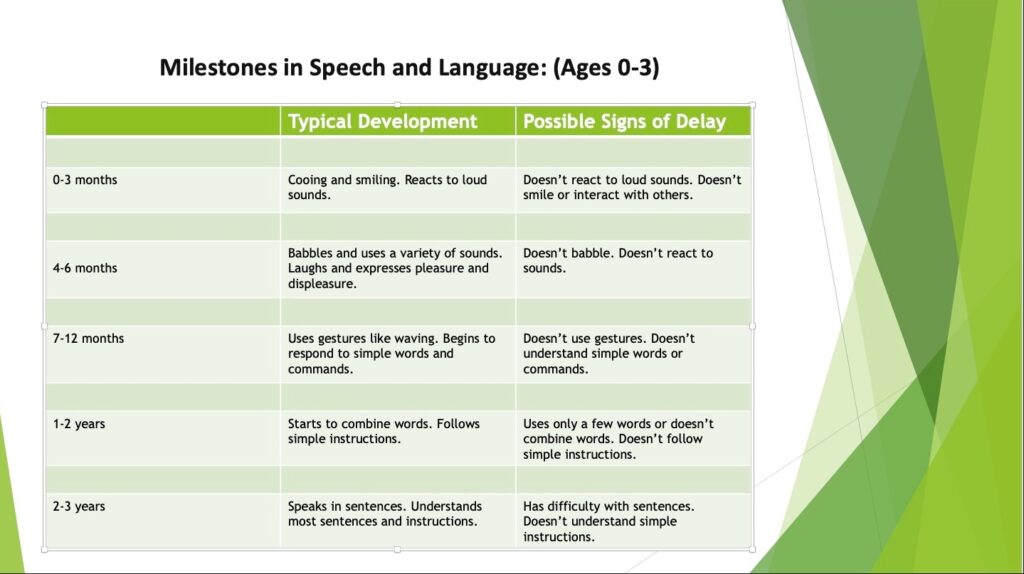
Understanding Early Intervention: Supporting Your Child’s Development
Early intervention is a vital approach to helping children with developmental delays or disabilities. It involves identifying and addressing potential issues early on, during the critical first years of a child’s life. By providing targeted support and services, early intervention can make a significant difference in a child’s growth and future success.

Identifying the Need for Early Support
Parents and caregivers play a vital role in identifying the need for early intervention. Some signs that a child may benefit from prompt treatment include:
- Delayed or absent babbling by 12 months
- Lack of gesturing (e.g., pointing or waving) by 12 months
- Limited vocabulary or lack of word combinations by 18 months
- Difficulty understanding simple instructions by 24 months
- Unclear speech or difficulty producing certain sounds by 36 months
To better understand typical developmental milestones and identify potential delays, explore our Child DevelopmentMilestones Ages 0-5 guide. This resource provides a comprehensive overview of key milestones in early childhood and can help you track your child’s progress.
If concerns arise regarding a child’s speech and language development, it is essential to seek a professional evaluation from an SLP. Early assessment can help identify the presence of a speech or language disorder and guide the development of an appropriate treatment plan.
Benefits of Timely Therapy
Timely therapy for speech and language disorders can provide numerous benefits for children, including:
- Improved communication skills
- Early intervention can help children develop age-appropriate speech and language skills, enabling them to express their needs, wants, and ideas more effectively.
- Children who receive prompt treatment may have an easier time engaging in conversations, following directions, and participating in social interactions.
- Enhanced academic success
- Strong speech and language skills are essential for academic success, as they form the foundation for reading, writing, and learning.
- Children who receive early support for their communication difficulties may be better equipped to meet the demands of the classroom and keep pace with their peers.
- Increased confidence and self-esteem
- Children with speech and language disorders may experience frustration, anxiety, or withdrawal due to their communication challenges.
- Early intervention can help children build confidence in their ability to communicate effectively, leading to improved self-esteem and overall well-being.
- Prevention of further delays
- Prompt treatment for speech and language disorders can help prevent the development of more severe communication difficulties.
- By addressing concerns early on, SLPs can help children avoid the compounding effects of speech and language delays on their social, emotional, and cognitive development.
Components of Early Intervention
Early intervention for speech and language disorders may involve a variety of approaches, depending on the child’s specific needs. Some common components of timely therapy include:
- Speech therapy sessions
- Regular speech therapy sessions with an SLP can help children develop and practice specific speech and language skills.
- Therapy may focus on articulation, fluency, voice, expressive and receptive language, or social communication, depending on the child’s individual challenges.
- Parent education and involvement
- SLPs often work closely with parents and caregivers to provide education and guidance on supporting their child’s speech and language development at home.
- Parents may learn strategies for encouraging communication, modeling appropriate language, and creating language-rich environments.
- Collaboration with other professionals
- Early intervention may involve collaboration with other professionals, such as occupational therapists, physical therapists, or psychologists, to address co-occurring developmental concerns.
- A multidisciplinary approach can help ensure that the child receives comprehensive support for their overall development.
- Interactive learning activities
Enhance early language development with engaging activities! Try our First Word Detectives activity, where children explore and identify new words. Then, reinforce vocabulary skills with our interactive Word Matching Game. These tools are designed to make learning fun and effective for young children.
In Conclusion
Early intervention is essential for children with speech and language disorders, as it can help them develop the skills necessary for effective communication and success in various aspects of their lives. By seeking timely therapy, prompt treatment, and early support, parents and caregivers can give their children the best possible chance at overcoming communication challenges and reaching their full potential. SLPs play a vital role in providing assessment, therapy, and guidance to support children’s speech and language development during the critical early years.
